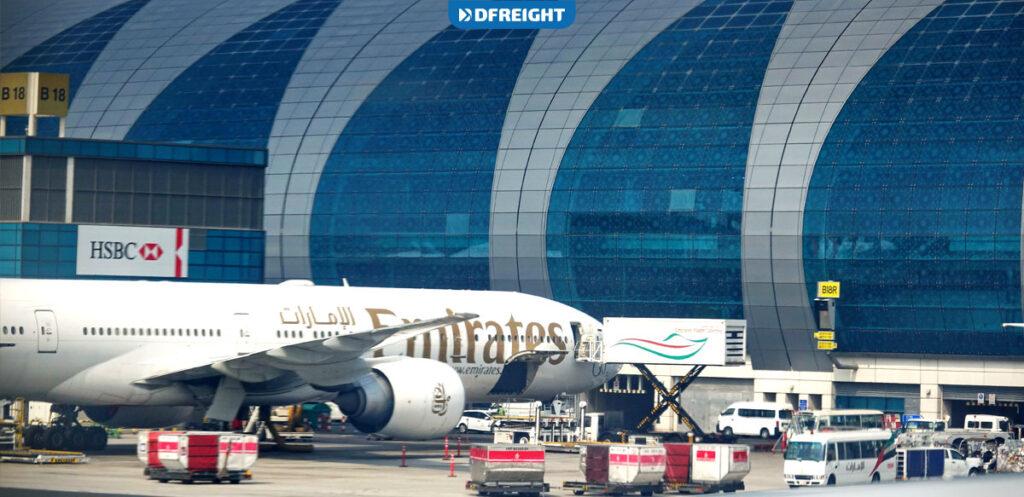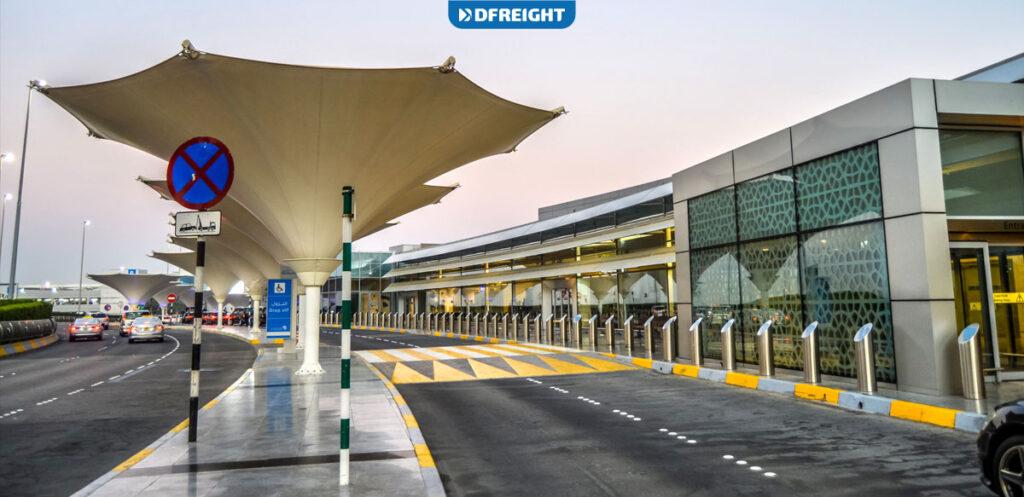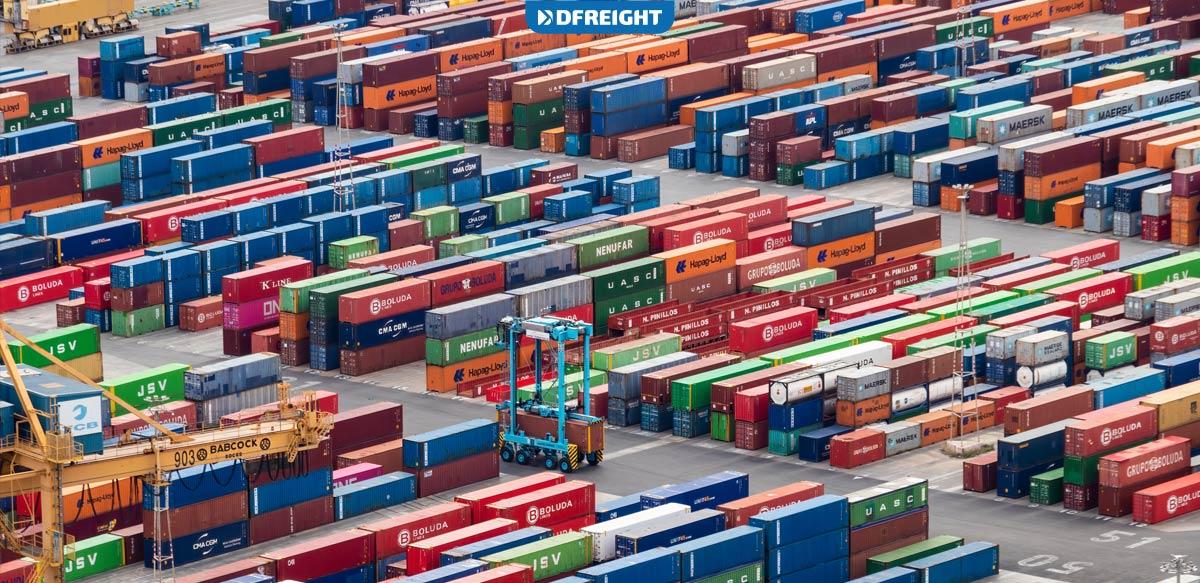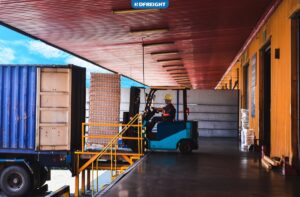The UAE is home to several central air and sea ports essential to the country’s economy. The UAE ports are located in different parts of the UAE, each with unique facilities and features. The UAE ports are used for various purposes, including trade, transportation, and tourism. They are also an essential part of the country’s transportation network. If you’re planning on doing business in the UAE, it’s vital to be familiar with the UAE ports. Please keep reading to learn more about the UAE ports and what they offer.
Table of Contents
UAE’s Ports
The UAE ports are some of the busiest and most advanced in the world. Located at the crossroads of East-West shipping routes, the UAE’s ports can handle a large volume of traffic and provide efficient service to the many ships that call there yearly. The UAE’s ports are an essential part of the country’s economy, as they provide a vital link for the movement of goods and people in and out of the country. The ports are also an essential source of employment, with many people working in the shipping and logistics industries.
The UAE’s ports are well-equipped to handle the increasing volume of traffic and the demands of the modern shipping industry. With the latest technology and facilities, the UAE’s ports can provide an efficient and reliable service to the many ships that call there yearly. We now look at UAE ports in two categories: airports and sea ports.
Airports
The cargo airports in the UAE are some of the busiest and most important airports in the world. They play a vital role in the country’s economy and are a crucial part of the logistics and transportation infrastructure. The UAE is home to two of the world’s busiest cargo airports, Dubai International Airport and Abu Dhabi International Airport. These airports handle a vast amount of air cargo, which is destined for markets in the Middle East, Africa, and Asia.
The cargo airports in the UAE are well-equipped to handle the large volumes of cargo they receive. They have modern facilities and infrastructure and can take a wide variety of aircraft. The UAE’s ports are essential to the country’s economy. They employ thousands of people and contribute significantly to the country’s GDP. In the following, we will review the most important airports in the UAE.
Dubai International Airport
Dubai International Airport (DXB) is one of the world’s leading airports for international cargo container traffic and also one of the prominent UAE ports. DXB’s success in handling cargo container traffic is due to several factors:
- The airport is strategically located in the Middle East, at the crossroads of Europe, Africa, and Asia. This makes it an ideal hub for connecting these different regions.
- DXB has a large land area and can handle many aircraft movements.
- It has a strong relationship with the shipping industry. The airport has its dedicated cargo terminal, which several major shipping companies use. This allows for a smooth and efficient flow of cargo containers through the airport.
- The airport has a well-developed infrastructure, a dedicated cargo railway line, and many storage facilities. This ensures that can quickly and efficiently move cargo containers through the airport.
- It has a solid commitment to quality and customer service. The airport has ISO 9001:2015 certification; the highest international quality management standard is the highest global standard quality management. The airport also has dedicated customer service staff available 24 hours a day to assist cargo operators.

DXB’s success in handling cargo container traffic results from its strategic location, large land area, strong relationships with the shipping industry, well-developed infrastructure, and commitment to quality and customer service.
Abu Dhabi International Airport
Abu Dhabi International Airport (AUH) is the busiest airport in the United Arab Emirates (UAE), located in the capital city of Abu Dhabi. AUH is a significant hub for passenger and cargo traffic in the Middle East. The airport is home to over 80 airlines, including Etihad Airways, the national airline of the UAE.
The airport has a dedicated cargo terminal, which is used by over 30 cargo airlines. The cargo terminal is equipped with the latest technology and handling equipment and can handle up to 1,000 tonnes of cargo daily.

The airport is also home to a Free Zone, which offers businesses 100% foreign ownership and tax-free status. The Free Zone is home to over 500 companies, including many leading international freight forwarders and logistics providers. AUH is an essential hub for the global freight industry and plays a vital role in the UAE ports and economy. The airport’s strategic location, modern infrastructure, and efficient handling procedures make it an ideal gateway for cargo traffic to and from the Middle East.
Sharjah International Airport
Sharjah International Airport is the third busiest airport in the United Arab Emirates, which opened on December 31, 1976, after being developed in the 1970s. It is spread over an area of 15,200,000 m2. The airport is strategically located just outside the city of Sharjah, in the northern emirate of the UAE. This location allows the airport to serve as a gateway to the rest of the country and the GCC region. The airport is just a short drive from Jebel Ali Port, the largest artificial port in the world. The airport has two main runways and a dedicated cargo runway.
The airport can handle many aircraft, from small private jets to the largest cargo planes. It has a state-of-the-art cargo handling facility; the facility is equipped with the latest technology, including X-ray machines and conveyor belts. The facility can also store and distribute a wide range of cargo, including perishable goods. The airport also has a dedicated team of customs officers responsible for clearing all imported goods. The team can clear a wide range of goods, including dangerous and sensitive cargo.
Like some other UAE ports, the airport is also home to a free trade zone, which has attracted a number of logistics and manufacturing companies.
Seaports
The UAE has some of the busiest seaports in the world. The UAE ports are essential to the country’s economy and play a significant role in its trade and commerce. The UAE ports, in this section, are located in the emirates of Abu Dhabi, Dubai, Sharjah, Fujairah, and Ras Al Khaimah. The seaports in the UAE are well-equipped and can handle a large number of vessels. The seaports in the UAE are also connected to the country’s airports and other UAE ports, which makes them easily accessible.
The UAE ports are managed by the Federal Transport Authority (FTA) and the Ports and Customs Authority (PCA). The FTA is responsible for regulating and supervising the UAE ports. The PCA is responsible for the customs and inspection of goods at the UAE seaports. The UAE seaports are an essential part of its economy and play a vital role in its trade and commerce. We will review the most important and main seaports of the UAE below.
Jebel Ali Port-Located in Dubai
Jebel Ali is the world’s ninth busiest port, the largest man-made harbor, and the biggest and busiest port in the Middle East. Port of Jebel Ali is the busiest port in the United Arab Emirates. It is situated on an artificial island and is surrounded by a large free zone. Jebel Ali Port is owned and operated by the Dubai Port Authority and is the main port for Dubai, handles around 85% of Dubai’s container traffic, and is also a central hub for the Middle East.
This Port was constructed in the late 1970s, opened in 1979, and was designed to handle the increasing trade from the Middle East. It is located on an artificial island that was created using dredged sand. The island is 9 kilometers long and 2 kilometers wide. The port has a depth of 17 meters. Jebel Ali Port has a capacity of 20 million TEUs. The port has a total of berths and can accommodate up to 85% of the world’s largest ships.
The port has a state-of-the-art terminal that can handle the largest container ships in the world. The port also has a dedicated container terminal, roll-on/roll-off terminal, and a general cargo terminal. Over 60 shipping lines serve Jebel Ali Port. The port has direct access to over 140 destinations. The port is also served by a dedicated rail service that connects the port to the rest of the UAE ports. Jebel Ali Port is one of the world’s most modern and efficient ports.
The port has a wide range of facilities and services, making it a preferred choice for shipping companies. The port is also a central hub for the Middle East and is an essential contributor to the economy of Dubai. The port handles over 14 million TEUs per year. The port is a vital part of the UAE port’s maritime trade infrastructure and serves as a gateway to the city of Dubai and the wider UAE. Port of Jebel Ali is well connected to the city, with a dedicated road and rail network. Several container shipping companies also serve the port.
The Port of Fujairah-Located in Fujairah
The Port of Fujairah is one of the world’s busiest and most strategic oil and gas shipping hubs. Situated on the United Arab Emirates (UAE) east coast, the port is the only UAE port located outside the Persian Gulf. The port is at the crossroads of the world’s busiest shipping routes. It is close to the major oil-producing regions of the Middle East, Africa, and South Asia. It is strategically vital for the UAE ports as it is the only port in the country that can accommodate the world’s most giant crude oil tankers.
The port is also home to the Fujairah Oil Terminal, one of the world’s largest crude oil storage facilities. The port’s strategic location and world-class infrastructure make it an ideal gateway for the UAE’s oil and gas exports. It handled 123.86 million cargo in the last 12 months.
The port of Fujairah plays a vital role in the UAE’s economy and is a crucial contributor to the country’s GDP. The port is one of the busiest in the world and handles a large volume of crude oil and refined products. The port’s facilities are also used by the UAE’s oil and gas companies to store and transship their products. It is an essential contributor to the UAE’s economy and plays a vital role in its oil and gas industry. The port’s strategic location and world-class infrastructure make it an ideal gateway for the UAE’s oil and gas exports.
Khor Fakkan Port-Located in Sharjah
It is located on the country’s east coast, in the Emirate of Sharjah. The port is situated on a man-made island and covers an area of over two square kilometers. Khor Fakkan Port is a deep-water port and can accommodate large vessels. The port can handle over five million containers per year. Khor Fakkan Port is equipped with the latest technologies and facilities.
The port has a dedicated container terminal, the largest in the region. The terminal is equipped with modern cranes and other handling equipment. The port also has a dedicated oil terminal. It is served by a dedicated railway line and connected to the UAE road network. Khor Fakkan Port is one of the leading ports in the region.
khalifa Port-Located in Abu Dhabi
Khalifa Port is the largest and deepest port in the United Arab Emirates. It is an industrial area north of Abu Dhabi. Abu Dhabi Ports operate the port. It is the first semi-automated port in the Middle East and is the busiest UAE port. Khalifa Port was inaugurated in December 2012 by UAE President Khalifa bin Zayed Al Nahyan. The port is designed to accommodate the world’s largest container ships and can handle 15 million TEUs (twenty-foot equivalent units) per year.
Khalifa Port is a vital part of Abu Dhabi’s plans to diversify its economy away from oil and gas. The port is expected to contribute to the Emirate’s GDP and create thousands of jobs. Khalifa Port is one of the most technologically advanced ports in the world. A team of robots operates its fully automated container terminal. The port also has a state-of-the-art ship-to-shore crane and a sophisticated tracking system that can monitor the location of every container in the port. Khalifa Port is an essential gateway for trade between the UAE ports and the rest of the world.
Conclusion
UAE ports, with their current facilities and plans for future growth, are a fantastic destination for sending and transferring your cargo. What has been written regarding the UAE ports has significant potential for future improvement and providing the necessary infrastructure.
DFreight offers the best shipping rates for businesses. Save time and money by using our service. Contact us and get a free quote now.
What are the UAE’s major ports?
The major ports in the UAE are Jebel Ali, Abu Dhabi, and Sharjah.
What are the facilities and services offered at UAE ports?
UAE ports offer a range of facilities and services, including container terminals, general cargo terminals, Ro-Ro facilities, and bulk terminals. They also provide a range of ancillary services such as warehousing, packaging, and labeling.
What are the procedures for shipping goods to and from the UAE?
The procedures for shipping goods to and from the UAE vary depending on the type of goods being shipped and the port of origin/destination.
What are the operating hours of UAE ports?
UAE ports operate 24 hours a day, seven days a week.














